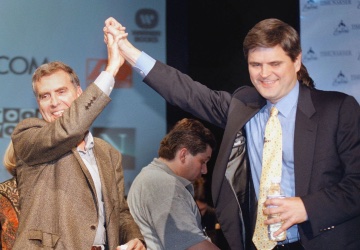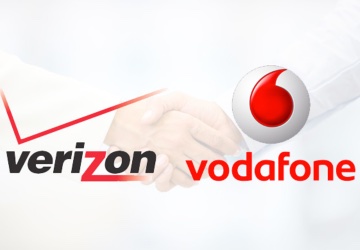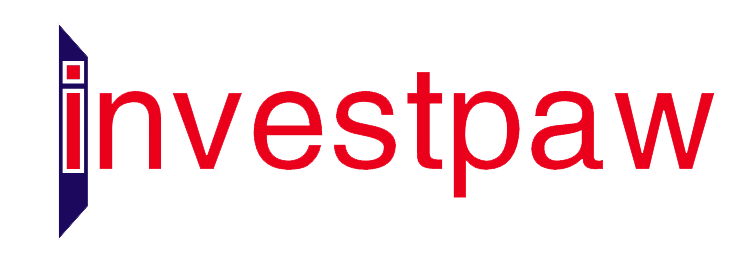When it comes to M&A, bigger is not necessarily better.
The larger the deal, the more likely the buyer is to overpay for the target company.
So whether you like big deals or not, we can't ignore them.
Below is a complete list of some of the most famous mergers and acquisitions in history.
Vodafone and Mannesmann
Vodafone bought Mannesmann for $203 billion in 2000, its largest acquisition to date, according to Bloomberg data through June 2022. UK-based mobile operator Vodafone has completed the acquisition of German-owned industrial group Mannesmann.
The textbook deal made Vodafone the world's largest wireless carrier and paved the way for dozens of other major mergers in the wireless market in the years that followed. There is no doubt that this acquisition will be regarded as the most important acquisition ever.

AOL and Time Warner
The merger of AOL and Time Warner is an example of what we call "big doesn't necessarily mean better." The deal is an example of how mergers and acquisitions can be avoided.
You'll see everything from high prices to stark cultural differences, and even in hindsight, both major media groups are uncertain about the future of their industries. Two months after the deal closed, the value of the merger plummeted as the dot-com bubble burst.
Nine years after signing what was touted as the largest merger in history, the deal fell through.
Gaz de France and Suez
The French are very proud of their national champions and these big French companies compete internationally while flying the tricolor. That's why former French President Nicolas Sarkozy intervened in 2007 to preserve the merger.
The deal is one of the largest ever mergers in the energy industry, resulting in the creation of the world's fourth-largest energy company and Europe's second-largest gas and power group. The combined company provides a diverse, flexible and robust energy supply.

Verizon and Vodafone
Since Vodafone has been involved in so many deals over the past 20 years, one would expect the company to have gained considerable experience in the process. A $130 billion deal in 2013 allowed Verizon to acquire its U.S. wireless business.
Two deals with Vodafone, the third largest ever. Verizon took full control of its wireless business, ending a decade-long partnership with Vodafone and was able to create new wireless networks in a competitive market.
The deal halved Vodafone's value to $100 billion. To complicate matters, Vodafone's market share fell from second to fourth place as a result of the deal.
Dow Chemical and DuPont
All eyes were on the 2015 announcement that Dow Chemical and DuPont would join forces to create a new, larger global chemical company. This horizontal merger would also eliminate any potential competition that might exist between the two companies.
Shortly after the merger closed in 2018, the company generated $86 billion in annual revenue. In 2019, management announced that the combined company would be split into three new companies, each with a different purpose.





